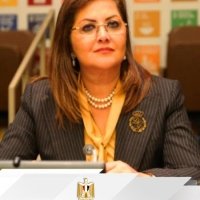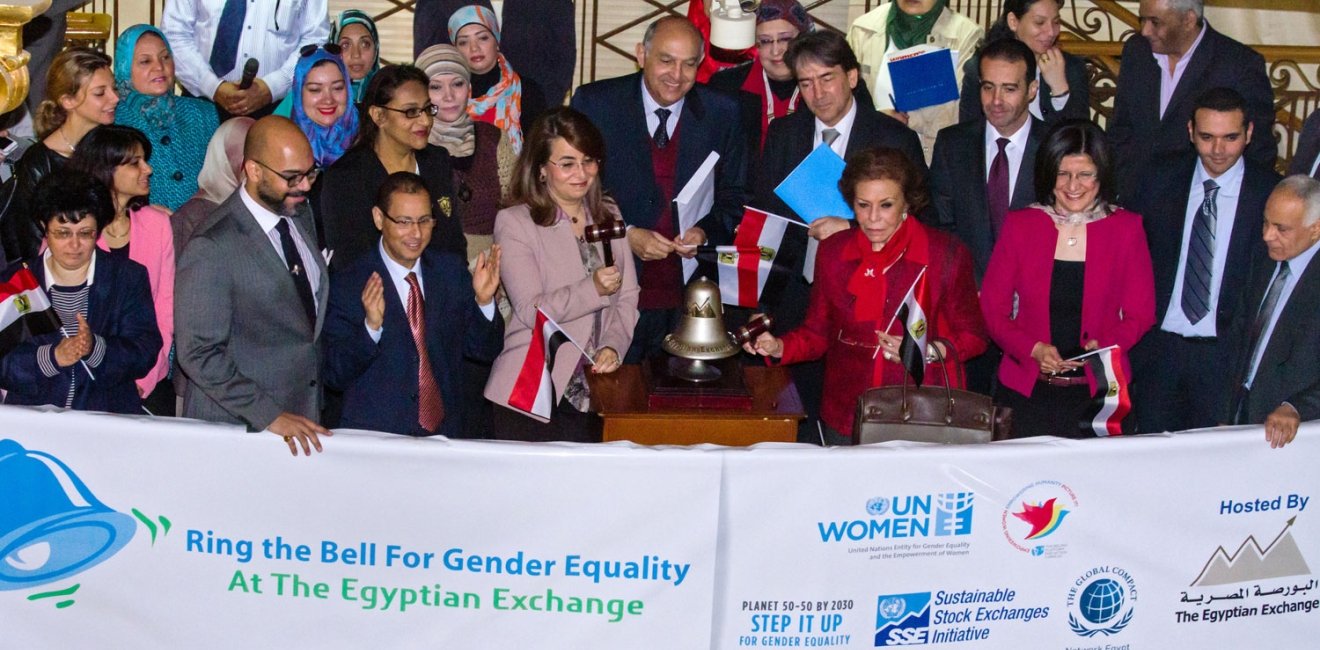
A blog of the Middle East Women's Initiative
Empowering women and integrating them as active participants in the economy is essential to promoting economic and sustainable growth.
Our determination has been resolute, with leadership, equality and empowerment deeply woven within Egypt’s Constitution, Egypt’s Vision 2030 and the National Strategy for the Empowerment of Egyptian Women, the Government has taken unprecedented steps to increase the representation of women and their leadership responsibilities across the Egyptian public sector, and within society.
We believe actions speak louder than words. This is evident in the increased number of females at the ministerial levels in 2018 from six, which was already a record number for Egypt, to eight which is 25% of ministerial positions. There are currently 89 female members in parliament, making up 15 percent of available seats—a giant leap in female representation from the 2 percent level as recently as 2012.
In spite of this progress, the Egyptian society still faces major challenges in empowering a wide base of women. Community structures are often affected by education, upbringing, family relations and social dynamics, which is why the unemployment rate among female youth reached 22%, representing almost double the rate of unemployment amongst male youth.
Nevertheless, The Government of Egypt is undertaking a combination of actions, policies and programs to promote social, economic, cultural and political empowerment for women. In addition to enhancing access to quality education and health services in general.
The government is heavily investing in its human resources, providing equal opportunities for training and professional development in the civil service. Commitment to developing gender-focused institutions and tools is needed to integrate gender parity into the mainstream policy cycle and promote gender responsive governance across the public sector.
Women’s organizational capacity is the missing ingredient that helps transform women’s access to paid work into an economic pathway to collective empowerment and active citizenship. Accordingly, we at The Ministry of Planning are working on entrepreneurship policy. This entails access to finance and a variety of non-financial services, a full range of capacity building programs, financial and non-financial training, and business services to develop strong and viable enterprises.
To further advance the role of women, we recently introduced the Government Executive Women Leadership Program, partnering up with Missouri State University and UNWOMEN.
The government is also offering yearly scholarships for civil servants, where 54% of the candidates are women, to enter the Government MBA program. All these programs aim to build women’s self-confidence, develop and strengthen their managerial and technical skills to encourage active participation in society.
Finally, enhancing an enabling ecosystem with the support of the private sector and civil society and acknowledging the importance of the role of women in Egypt will create a society which appreciates women’s participation, values their contribution, and provides them with equal decision-making power. We are in the midst of a transformational period—one that will be shaped by a brighter future by, and for, Egyptian women.
Photo: UN Women/Mohamed Ezz Aldin
Author


Middle East Program
The Wilson Center’s Middle East Program serves as a crucial resource for the policymaking community and beyond, providing analyses and research that helps inform US foreign policymaking, stimulates public debate, and expands knowledge about issues in the wider Middle East and North Africa (MENA) region. Read more


Middle East Women's Initiative
The Middle East Women's Initiative (MEWI) promotes the empowerment of women in the region through an open and inclusive dialogue with women leaders from the Middle East and continuous research. Read more

Explore More in Enheduanna
Browse Enheduanna
Women are the Catalysts for Change in Lebanon

How Education Can Empower Young Women in MENA


